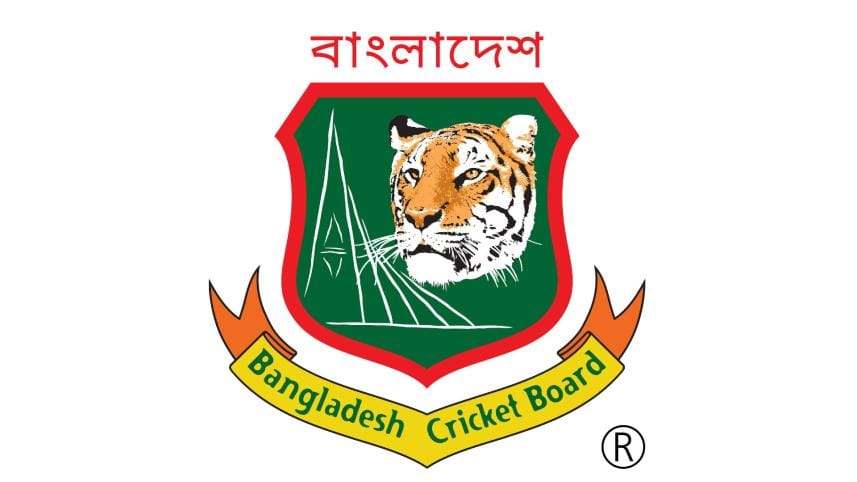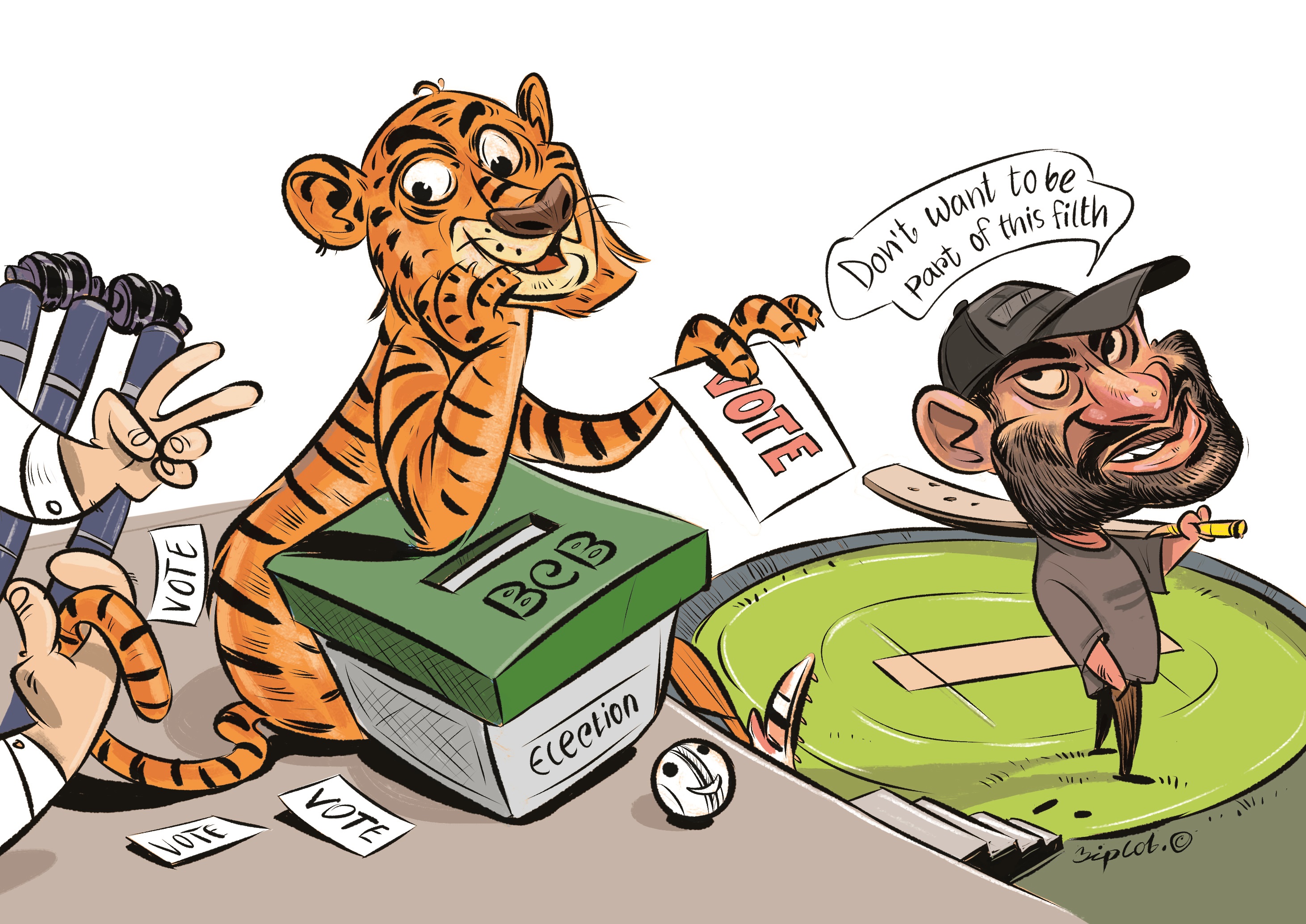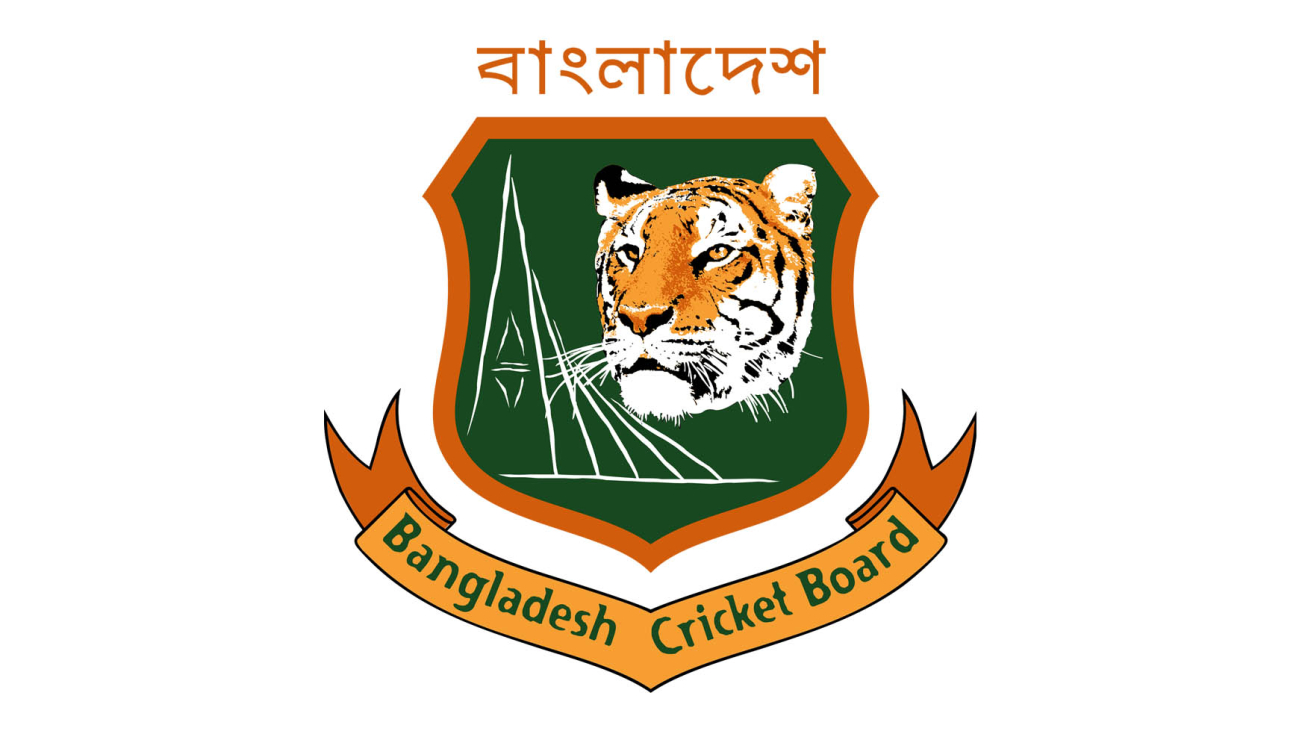An election only for continuity?

The stage is set, the voters are ready, as the Bangladesh Cricket Board (BCB) heads to polls today -- not with anticipation, but with a weary sense of repetition.
The cash-rich board is once again electing its directors for the next four years, but the process, mired in controversy and control, feels less like an exercise of democracy and more like a scripted drama.
From the moment the election schedule was announced on September 21, controversy began to swirl. Allegations of government interference, disputes over councillorships, and loopholes in the BCB constitution marred the process.
What could have been an opportunity for reform, became a repeat of the old game -- power over principle, influence over integrity.
With the ousting of the Awami League government, there was genuine hope that the interim authority would seize this rare chance to introduce reforms in the BCB, paving the way for genuine cricket organisers to reclaim the board.
But those expectations have faded away. Rather than ushering in transparency, the election has exposed the same systemic flaws that have long crippled Bangladesh cricket's governance.
The controversy first erupted over the nomination of district and divisional councillors. Allegations of interference surfaced after it was revealed that several nominations were manipulated and deadlines were extended twice.
The root of the problem lies in the BCB's constitution, which allows the district sports association to send councillors "if" there is no district cricket association. That one word -- "if" -- has created endless disputes and left room for political and administrative meddling.
Then came the clubs. As always, they remain the most powerful bloc in the board, with 12 of the 25 directors coming from Dhaka clubs. In no other major cricketing nation do clubs hold such disproportionate sway, but in Bangladesh, club politics has become the backbone of the BCB. Every attempt to reform this imbalance has failed, crushed by the same vested interests that benefit from it.
The irony runs deeper. Even as officials decry political interference, the BCB's own constitution ensures it -- by allowing the National Sports Council (NSC) to directly nominate two directors. This structural dependency on the government leaves the board perpetually vulnerable to influence.
The promise once made to the International Cricket Council (ICC) -- in Bangladesh cricket's former director of development Eddie Barlow's handwritten note -- to form regional associations and decentralise power has long been forgotten.
Twenty-five years later, everything still flows through Dhaka, and the system remains untouched.
The interim government, thought to have the best chance in years to oversee a transparent poll, has disappointed. Veteran organisers have grown disillusioned, realising this election is shaping up as another exercise in formality rather than fairness.
A total of 157 voters will cast ballots to elect 17 directors from 28 candidates. Six directors have already been elected unopposed. Once the board is complete, elections for president and vice-presidents will follow -- though few expect surprises.
Current president Aminul Islam Bulbul, elected as a director from Dhaka Division, is widely expected to retain his post. His path was made easier by the withdrawal of several high-profile names, including former national captain Tamim Iqbal, who stepped aside citing "political interference and conspiracies."
Two major controversies have defined this election. First, Bulbul's September 18 letter to the Ministry of Youth and Sports in which he admitted that several divisions and districts failed to properly nominate councillors, prompting deadline extensions and accusations of manipulation.
The second centred on the 15 Dhaka Metropolis clubs, whose councillorships were suspended, reinstated, and suspended again in a week-long drama that triggered protests and withdrawals.
Even yesterday, the saga continued. A Supreme Court chamber judge overturned a High Court order that had barred those clubs, restoring their voting rights at the last moment and forcing the Election Commission to reprint ballots.
The damage, however, is already done. Bangladesh cricket once again finds itself trapped in the same old loop -- an election that promised change but is set to deliver continuance of a broken system.




 For all latest news, follow The Daily Star's Google News channel.
For all latest news, follow The Daily Star's Google News channel. 

Comments